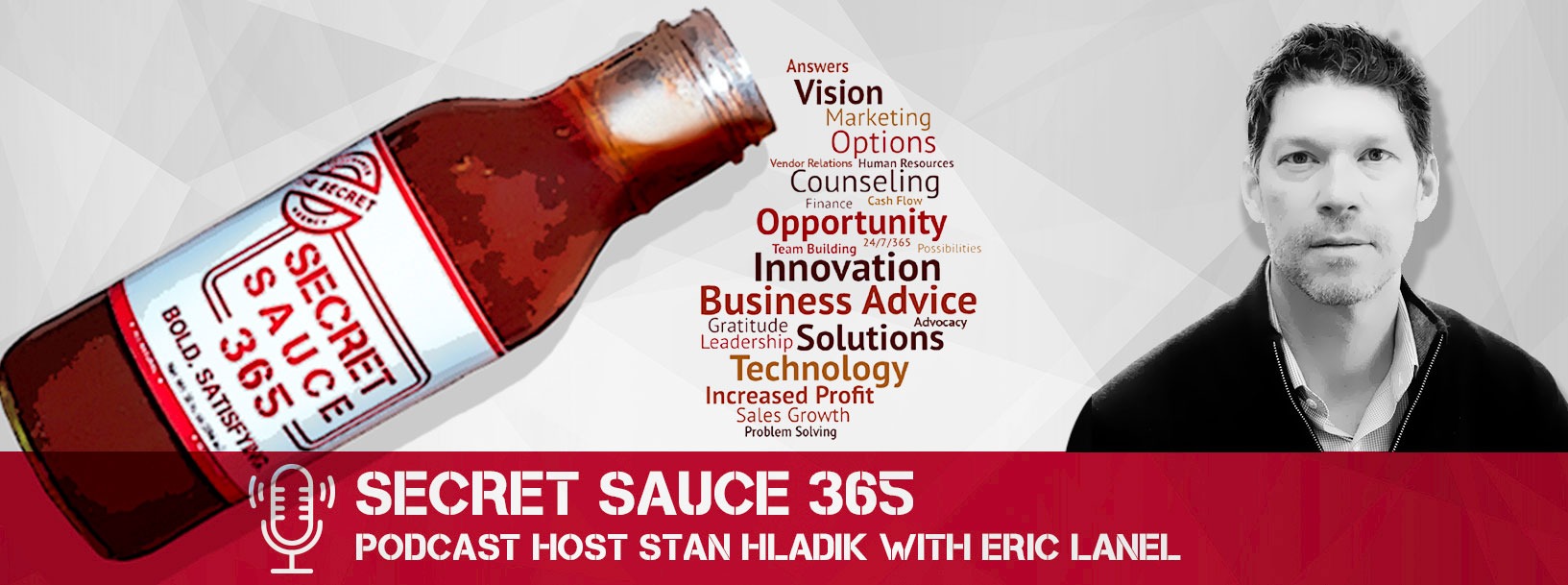Where to Start with Marketing Your Business

Secret Sauce 365
Episode #2
Eric Lanel began his professional career in research at a television rep firm. He quickly moved to strategy and negotiation at CBS Television, where he created a new division focusing on the late news in all major markets across the country. He was then recruited to oversee a team at Go.com, Walt Disney’s foray into the internet. Eric joined DoubleClick in 1999, when he was recruited by the founder to develop and oversee a new division. After successfully launching this division, in 2001, he was brought into a special division created by CBS and Paramount. Eric, with a team of 11, was charged with laying the foundation and developing the strategy for the two networks working together in overlapping major markets. In 2002, Eric left corporate America to become the President of GWP Inc., a top 100 promotion agency, where his understanding and knowledge of television and online shaped GWP into what it is today.
What You Will Learn:
- Understanding target audience
- Need for a website
- Vision, mission, value statement
- Marketing urban myths
In the latest episode of the Secret Sauce Podcast 365, we speak with Eric Lanel, President of GWP Inc. Advertising about some important topics in marketing your business.
Resources:
- Website: https://gwpinc.com/
- Youtube: https://www.youtube.com/channel/UCgCt__nAQ-nL3fzvTFnKIdw
- Linkedin: https://www.linkedin.com/in/eric-lanel-gwp/
- Facebook: https://www.facebook.com/eric.lanel